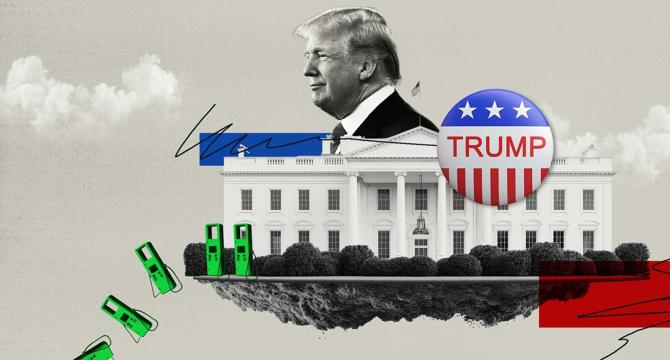Insideevs
1M
356

Image Credit: Insideevs
Trump Has Already Turned The EV Industry Upside Down. Here's How
- The chaotic second administration of President Donald Trump has already made significant moves impacting the electric vehicle (EV) industry.
- The administration has cut off funding for EV chargers, potentially disrupting the rollout of public charging infrastructure across the country.
- There are concerns about legality around the pause in the National Electric Vehicle Infrastructure (NEVI) program and the impact it may have on EV adoption.
- The administration is also targeting fuel economy regulations for potential rollbacks, focusing on promoting domestic energy supplies like oil and natural gas.
- Changes to Corporate Average Fuel Economy (CAFE) standards and EPA regulations could affect automakers' electrified car goals.
- There are discussions around challenging California's stricter emissions regulations and the potential impact on the broader market.
- Tariffs on imported cars and car parts could have a significant impact on the U.S. auto industry, leading to higher prices and supply chain disruptions.
- The administration is considering axing the $7,500 EV purchase incentive, potentially affecting EV buyers and the industry as a whole.
- These policy changes could slow EV sales growth, delay investments in clean energy, and have long-term implications on climate change mitigation efforts.
- The impact of these changes on the EV industry remains uncertain, with concerns about stifled growth and the need for rapid electrification to combat climate change.
Read Full Article
21 Likes
For uninterrupted reading, download the app